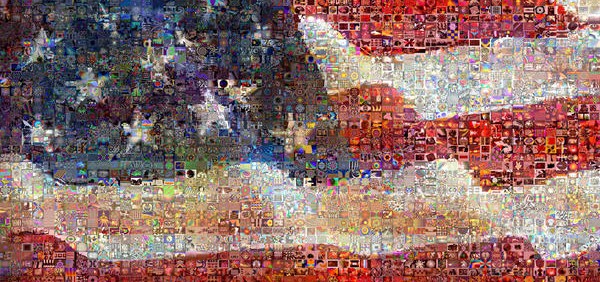“As Free and Independent States … we mutually pledge to each other our lives, our Fortunes and our Sacred Honor.” — The Declaration of Independence
I love America. And I cherish our many freedoms. Standing on the USS Midway, leading an “Honoring the Fallen” program at the American Freedom Festival this past Memorial Day, reaffirmed how proud I am to be an American — and how deeply grateful I am for the sacrifices made on my behalf.
But this 4th of July carries with it a special challenge. The celebration of our independence comes against a background of growing division and divisiveness. We are a nation torn and deeply divided by partisan politics — more so than at any time in recent history. In the battle of “Us v Them,” of “Red v Blue,” of “Fox v MSNBC,” Americans who disagree with us are automatically dismissed as “unpatriotic,” and considered “the enemy.”
A fresh new crop of “more-American-than-thou” politicians and media talking heads have joined the old ones in polarizing our communities and nation. Where I grew up, it was called “dirty fighting.” Masters of manipulation in the use of fear, distortion and controversy, they contemptuously slander, ridicule, intimidate, bully and demonize those with whom they disagree, including our president (now referred to disdainfully as “Obama”) who is accused daily of being “anti-American.” Besides dishonoring the Americans who gave their lives to fight actual tyranny, these grossly distorted characterizations are corrosive to our democracy.
Leaders like John Kennedy could unify our nation by affirming, “Both Republicans and Democrats want to do what is right for America” — are those days gone? Is acknowledging the good intentions and integrity of the “other side” tantamount to partisan treason? Have elected leaders seeking short-term gain through the politics of division — and a 24 hour news media hungry for ratings — lowered the bar on mutual respect and civility? Fanning the flames of paranoia and distrust, putting political ambitions, power, arrogance and greed ahead of humility and respect derails the kind of “constructive conversations” that bring us closer together, educate us and make us a stronger.
We, the American people, are ultimately responsible for deciding our future. By allowing differences to grow into chasms, or settling for division, we negate the unifying power and potential of civil discourse, deliberation and compromise. Self-destructively digging ourselves into the deep, dark hole of disunity will make it increasingly difficult to move forward as a community, and as a nation.
Standing together during the playing of our national anthem, proud and momentarily unified, many of us dream of patriotism beyond politics. We yearn for a sense of commonality similar to that which we experienced in the aftermath of 9-11 — and a renewed sense of confidence that together we can overcome the injustices and challenges of our time. This 4th of July, let us create opportunities for a shared patriotism. Being patriotic is a way of life that begins with how we treat one another.
We are a nation in need of democracy-friendly patriotism woven into a code of civility that allows us to work beside even those with whom we disagree. Let our love of country be affirmed by a willingness and ability to reach across the aisle with mutual respect, rather than contempt, regain trust and confidence in the fruits of hard-fought deliberations and decisions (even if our side sometimes “loses”). Let us aspire to be a participatory democracy in which all concerned Americans are “patriots.”
How we express our love of America, what political party we belong to and where we go to worship (including the canyons and cliffs above Torrey Pines Beach) are all intimate elements of who we are. They represent the diversity that is America. This 4th of July, we would all be wise to rededicate ourselves to rediscovering the hallowed (common) ground on which to build a better America.
This article was originally published in the San Diego Union Tribune.
Druck, Ph.D., is the author of The Real Rules of Life and president of Druck Enterprises Inc. He wrote this with input from Carl Luna, director of The Institute for Civic Engagement at USD.

